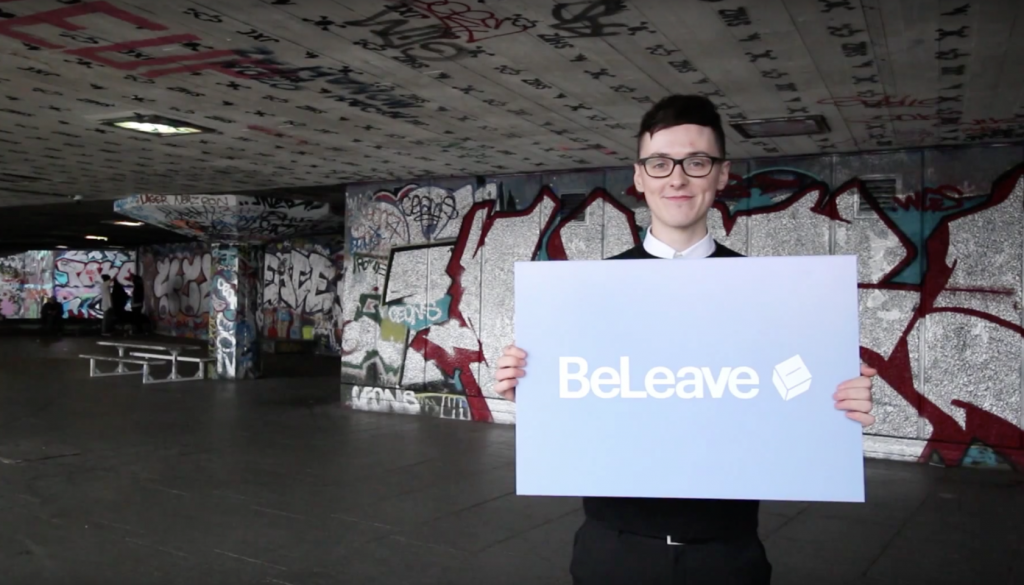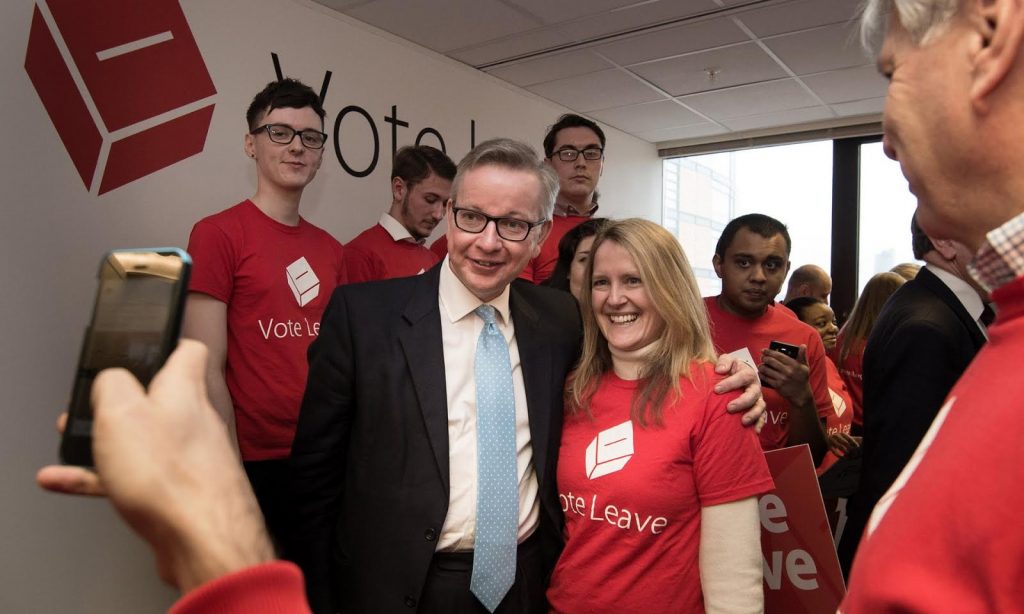“Young people are the future wealth and job creators. It is their lives which will be impacted the most if we stay within the European Union, which is hell-bent on political and economic integration.”
We are now 23 days away from the moment when the United Kingdom takes to the ballot box and make their choice: In or Out. Although current data suggests a narrow lead for the Remain campaign, polling figures indicate that the decision to stay or remain in the EU is going to go down to the wire.
With the latest results suggesting that 18% of the country are yet to make up their minds on the EU referendum, the IPF spoke to Darren Grimes, Fashion and Business student at Brighton University, and Founder of BeLeave, a group urging young people to vote for a Brexit by “putting forward the optimistic case for leaving”.
BeLeave have focused on potential benefits of leaving, such as the possibility of trade deals with growing global economies and the ability to “reclaim national sovereignty.” Darren explained that one of the fundamental reasons for the existence of BeLeave was to challenge the perception that young people could be “nothing but pro-European Union”. He said:
“They say the EU has been this benign and benevolent organisation that would further their cause and further what millennials should believe in. I thought, ‘hang on a minute, I want young people to be able to make an informed and rational choice in this referendum’.”

Darren Grimes said he wants young people to engage in the EU Referendum debate, regardless of what side of the debate they lie on. [Image credit: BeLeave]
The economic argument for a Brexit
Darren went on to outline his arguments in favour of a Brexit, beginning by describing “remote EU institutions” as being “quite nefarious” and used the example of the Greek Debt Crisis to illustrate his argument.
He described the EU as an outside power, “overruling democratically elected government and installing technocrats instead just to further their own political agenda”, with the results of their interference being 50% youth unemployment within Greece. Darren believes it is this figure that makes the referendum decision an important one for young people in the UK.
“I never want something like that to happen to our generation. It is just absolutely appalling. I really wanted to set something up which would allow young people to hear both sides of the argument.”
BeLeave’s economic arguments for a Brexit are similar to that of the mainstream Vote Leave consensus, describing the £10billion UK contribution towards the EU as a “wasted” spend and believing that valuable resources are being lost. Darren and his fellow BeLeave members think that the money would be better spent within the UK, on projects such as affordable housing, apprenticeships, and schools. He said:
“That is quite a substantial amount of money that we are spending to be wasted on grand bureaucratic follies in Brussels.”
The EU and human rights
On the topic of human rights, BeLeave do not think that the EU is the force for liberal values that it has tried to present itself as. Darren spoke to the IPF about LGBT and women’s rights, arguing against the notion that the EU is an arbiter on these issues and pointing to anti-LGBT policies in eastern Europe. .
“The European Union has done nothing to combat extremism of that far-right. It might be safer to take that control and spend our money on our priorities and look forward to a brighter, exciting future outside of the European Union.”
Darren said that he believes the “more positive liberal internationalist changes” will be made only if Britain votes to leave EU. He also thinks that British membership of programmes such as the Erasmus scheme should not be held as being contingent on membership of the EU since the scheme has already non-EU member states.

The youth campaign want young Britons to look at both sides of the debate before heading to the polls on 23 June. [Image credit: BeLeave]
BeLeave looks ahead
Darren said that despite what happens on 23 June, he doesn’t believe any real change will take place within the next five years. He noted that whether UK leaves or stays in the EU, the effects will only be felt “in the median term”.
Although a number of experts have warned of the immediate effects of a Brexit, such as Britain facing “torturous negotiations” with the World Trade Organisation, BeLeave still thinks that regardless of any potential setbacks in the short-term, in the “median term”, Britain’s future is brighter outside the EU.
“I think it impacts upon them a hell of a lot more than older generations because nothing is going to happen in the next five years.”
Darren makes no secret that BeLeave is “on an uphill battle” in their aims to convince British youth of the strength of their arguments. But another main goal of the BeLeave campaign, beyond making the specific case for the Leave vote, is to engage young voters and encourage participation regardless of position.
According to the Hansard Society, those aged 65 and over are twice more likely to vote on 23 June when compared with 18 to 24-year-olds.. Through BeLeave, Darren hopes to bring the debate into forums that young people frequently visit by launching a “digital campaign worthy of 2016” and bringing a “sense of excitement” to the referendum debate that will engage and inspire young people to get out and vote.
“Young people do want to get engaged in politics but the process itself feels quite far removed for young people today. That is one thing we definitely want to combat.”
On 8 June, the IPF will host a EU Referendum Youth Debate at The Shard, London. BeLeave – and other youth groups campaigning for and against a Brexit – will discuss crucial questions about the UK’s place in the EU. Find out more and register here.

